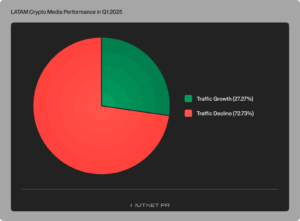
Introduction
Cryptocurrency has revolutionized the way we think about money and financial transactions. However, as cryptocurrencies have gained in popularity, concerns have arisen around the privacy of these transactions. In this article, we will explore the importance of privacy in cryptocurrency transactions and the tools and techniques that can be used to enhance privacy.
The Importance of Privacy in Cryptocurrency Transactions
One of the key benefits of cryptocurrency is the fact that it offers greater privacy and anonymity than traditional financial transactions. However, this privacy is not absolute, and there are several ways in which cryptocurrency transactions can be tracked and traced. This can pose a risk to the privacy and security of individuals and organizations that use cryptocurrencies.
Risks Associated with Lack of Privacy in Cryptocurrency Transactions
One of the main risks associated with a lack of privacy in cryptocurrency transactions is the potential for theft and fraud. If a hacker gains access to an individual’s cryptocurrency wallet or is able to track their transactions, they could potentially steal large amounts of cryptocurrency. Additionally, without privacy, transactions can be traced back to individuals, which could lead to targeted attacks or extortion.
Techniques for Enhancing Privacy in Cryptocurrency Transactions
There are several techniques that can be used to enhance the privacy of cryptocurrency transactions. One such technique is the use of privacy-focused cryptocurrencies, such as Monero or Zcash, which offer greater privacy and anonymity than Bitcoin or other mainstream cryptocurrencies.
Another technique is the use of privacy-focused wallets, such as the Samourai Wallet or Wasabi Wallet, which offer advanced privacy features such as coin mixing and transaction obfuscation. These wallets are specifically designed to enhance the privacy and security of cryptocurrency transactions.
The Role of Blockchain Technology in Ensuring Privacy
Blockchain technology, which underpins most cryptocurrencies, is designed to be transparent and secure. However, this transparency can pose a risk to privacy. To address this issue, several blockchain projects have been developed that focus on enhancing privacy and anonymity.
One such project is the Tor Network, which uses a decentralized network of servers to route internet traffic through multiple layers of encryption, making it difficult to trace. Another project is the TumbleBit protocol, which uses a mix of encryption and transaction shuffling to enhance the privacy of Bitcoin transactions.
Regulations and Privacy in Cryptocurrency Transactions
Governments and regulatory bodies have become increasingly interested in the regulation of cryptocurrencies, in part due to concerns around privacy and security. While some regulations have been put in place to enhance the privacy of cryptocurrency transactions, others have been introduced that could potentially compromise privacy.
For example, in some countries, exchanges are required to collect and store personal information about their customers, which could potentially be used to track cryptocurrency transactions. Additionally, some governments have proposed legislation that would require cryptocurrency users to disclose their identities and transactions to government authorities.
Future Trends in Cryptocurrency Privacy
As the use of cryptocurrencies continues to grow, new privacy-focused tools and technologies are likely to emerge. One promising development is the increasing use of blockchain-based privacy solutions, such as zero-knowledge proofs and homomorphic encryption. These solutions offer a way to enhance privacy while still maintaining the security and transparency of blockchain technology.
Another trend is the rise of decentralized exchanges, which allow users to trade cryptocurrencies without relying on a central authority. Decentralized exchanges offer greater privacy and security, as they do not require users to provide personal information or store their funds on a centralized server.
Potential Drawbacks of Cryptocurrency Privacy
While privacy is an important aspect of cryptocurrency transactions, there are potential drawbacks associated with excessive privacy. For example, privacy-focused cryptocurrencies may be used for illegal activities such as money laundering or terrorism financing. Additionally, excessive privacy could potentially hamper efforts to combat financial crimes or enforce tax laws.
Balancing Privacy and Security in Cryptocurrency Transactions
Balancing privacy and security is a delicate task, especially in the context of cryptocurrency transactions. While privacy is important, it is also important to ensure that cryptocurrencies are not used for illegal activities or to evade taxes. Governments and regulatory bodies will need to find a way to strike a balance between privacy and security to ensure that cryptocurrencies can be used in a responsible and legal manner.
Tips for Maintaining Privacy in Cryptocurrency Transactions
There are several steps that individuals can take to maintain their privacy when using cryptocurrencies. Here are some tips to keep in mind:
- Use privacy-focused cryptocurrencies: Look for cryptocurrencies that prioritize privacy, such as Monero, Zcash, or Dash.
- Use a separate wallet for each transaction: By using a different wallet for each transaction, you can minimize the risk of your transactions being linked together.
- Use a VPN: By using a virtual private network (VPN), you can hide your IP address and location, making it more difficult to track your cryptocurrency transactions.
- Use a mixing service: Mixing services allow you to combine your cryptocurrency with other users’ cryptocurrency, making it more difficult to trace your transactions.
- Use a hardware wallet: A hardware wallet is a physical device that stores your cryptocurrency offline, making it more difficult for hackers to access your funds.
Regulatory Landscape for Cryptocurrency Privacy
The regulatory landscape for cryptocurrency privacy is complex and constantly evolving. Some governments and regulatory bodies have expressed concerns about the potential for cryptocurrencies to be used for illegal activities, while others recognize the importance of privacy in protecting individuals’ financial information.
In the United States, the Financial Crimes Enforcement Network (FinCEN) requires cryptocurrency exchanges to comply with anti-money laundering (AML) and know-your-customer (KYC) regulations. These regulations are designed to prevent the use of cryptocurrencies for illegal activities such as money laundering and terrorist financing.
In Europe, the General Data Protection Regulation (GDPR) provides individuals with the right to control their personal data, including their financial information. This regulation has implications for the use of cryptocurrencies, as it requires businesses to ensure that individuals’ personal data is kept secure and protected.
Conclusion
Privacy is a fundamental right, and it is important to ensure that this right is upheld in the context of cryptocurrency transactions. While there are risks associated with a lack of privacy, there are also many tools and techniques that can be used to enhance the privacy and security of cryptocurrency transactions. As the use of cryptocurrencies continues to grow, it is important for individuals and organizations to stay informed about these tools and techniques to protect their privacy and security.
I’m a highly experienced and respected author in the field of Cryptocurrencies. I have written numerous articles and books on the subject, and my work is highly regarded by my peers. I have a strong understanding of the technology behind cryptocurrencies, and I am always up-to-date with the latest developments in the space. I am also an active investor in cryptocurrencies, and I have made a significant profit from investing in this new asset class. In addition to my writing and investment activities, I am also an active member of the cryptocurrency community, and I frequently speak at industry events.








